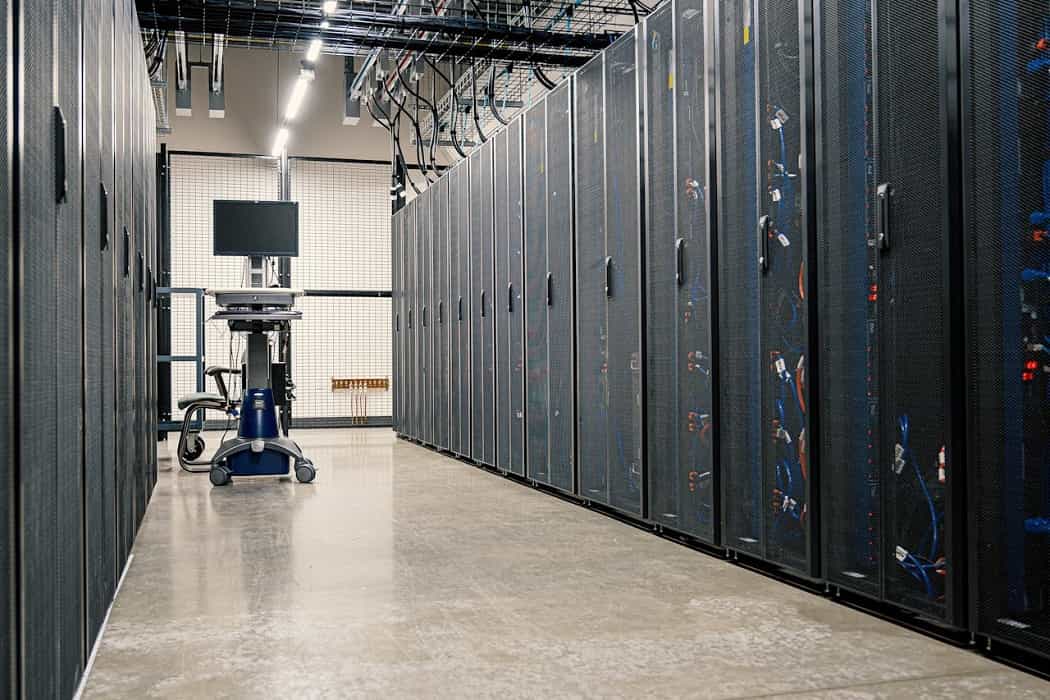Choosing colocation vs dedicated server hosting doesn't need to be a daunting task. Find the right fit with our guide and elevate your site's performance.
So, your online business has skyrocketed, and your current hosting plan is struggling to keep up with the increased traffic and growing data demands. Do not panic - it is a familiar tale.
As websites expand, they often grapple with the same old adversaries of slow loading speeds, unexpected downtime, and security vulnerabilities. If ignored, these challenges can erode brand credibility and stunt revenue streams.
Luckily, sidestepping these pitfalls is as simple as recognizing the right time to upgrade your hosting plan to keep your website running smoothly and securely. For the burgeoning startup or business growing in complexity, this often calls for powerhouse solutions such as dedicated servers and colocation web hosting.
But how do you choose between these two web hosting options? Since each solution carries its own advantages and considerations, it necessitates careful evaluation tailored to your business's unique needs and growth. That's where this guide comes in.
This post will delve into the nuanced colocation vs dedicated server hosting conundrum head-on. Grab your thinking cap and get ready to discover crucial insights for informed decision-making.
1. Colocation vs Dedicated Server Hosting Difference
2. What is Colocation Hosting?
4. Colocation vs Dedicated Server Hosting: Performance Analysis
5.1. A Higher Degree of Customization
7. Factors to Consider When Choosing Between Colocation and Dedicated Server
7.3. Level of Control & Customization
8. When is Colocation Hosting the Right Pick?
Colocation vs Dedicated Server Hosting Difference
Every hosting solution has its unique fingerprint. Therefore, when pondering colocation vs dedicated server hosting, learning how each hosting option works puts you on the right track toward making the right decision.
In this case, it is like choosing between two different worlds. That's not necessarily bad because it makes it easier to decipher which hosting option is ideal for your particular requirements. So, let's jump right into what each hosting solution represents.
What is Colocation Hosting?

Web hosting, as a service, allows individuals to rent resources on a server to store website files and data. The colocation hosting model works in reverse of this typical setup. It involves renting prime space in a high-tech data center facility to house one or more of your own server hardware.
But more than providing a home base for your servers, reliable colocation hosting runs efficiently. Server devices require high-speed internet connectivity to ensure optimal network performance, a temperature-controlled environment to prevent overheating, and redundant power supplies to keep servers running smoothly. Colocation data centers have all of these measures in place and will thus keep your servers industriously humming away at all times.
That leaves you with the task of focusing on the business side of things. Everything that has to do with the server is your domain. That includes setup within the data center, choice of hardware components (CPU, storage drives, and even network interfaces), and all software-related aspects. You will be allowed routine visits to the colocation facility to perform server upgrades and maintenance.
Pros
Cons
What is Dedicated Hosting?

With dedicated server hosting, you rent an entire server (not just a portion of its resources) from a hosting provider. But unlike the case of colocation hosting, the web host owns and maintains the server hardware. You only have exclusive access to its resources.
In essence, dedicated hosting strikes a balance between access and control. The server you get comes ready to use, complete with a pre-installed operating system (although some host providers give you freedom in terms of OS choice), pre-configured hardware settings, and fixed features in terms of specified amounts of RAM, bandwidth, storage, and CPUs. However, the software side of the server remains a blank slate.
That leaves you free to set your own software configurations and install applications on the server.
Pros
Cons
Colocation vs Dedicated Server Hosting: Performance Analysis
If you want to upgrade to a robust hosting infrastructure capable of sustaining growth by boosting performance, colocation and dedicated server hosting are excellent choices. Both offer the raw power and control you crave as a flourishing business, albeit in distinct ways.
But this begs the, "How do they stack up against each other in terms of performance?" Here's a side-by-side analysis:
Colocation Benefits
A Higher Degree of Customization
With colocation, you have complete control over server hardware, allowing you to fine-tune and meet even the most specific performance requirements. For example, instead of settling for standard RAM and SSD storage offered by most hosting providers, you can opt for custom colocation servers equipped with specialized ECC RAM modules and NVMe drives, ensuring data integrity, minimized errors, and lightning-fast storage performance.
Additionally, while hosting providers offer standard network configurations, with colocation, you can leverage custom networking solutions like 10Gbps Ethernet adapters or fiber optic connections to enhance data transfer speeds and reduce latency, providing a competitive edge for bandwidth-intensive applications such as video streaming or online gaming.
Greater Scalability
Low Latency
Depending on where the data center is based, colocation hosting may offer lower latency when compared to dedicated servers hosted in remote areas. This advantage can be crucial for applications that require real-time data processing or low-latency communication.
Dedicated Server Benefits
Quick Deployment
Dedicated servers come with quick-launch control panels, making them suitable for projects requiring rapid scaling or temporary hosting needs.
Ease of Management
Dedicated servers are usually easier to manage since the hosting provider handles hardware maintenance, security, and infrastructure management. Your job is to focus on optimizing your applications and services.
Consistent Performance
Dedicated hosting offers exclusive access to the server's processing power, memory, and storage. Thanks to this setup, you don't have to worry about performance fluctuations caused by other users on the same server, as it is the case with some types of web hosting.
Verdict: With regard to raw performance, both colocation hosting and dedicated servers offer similar levels of excellence, as they provide dedicated resources. However, colocation hosting allows for greater customization and optimization of hardware components, resulting in potentially better performance for specific or heavy workloads.
Ultimately, the ideal choice will depend on what is more crucial for you - the ultimate control and scalability of colocation hosting or dedicated server benefits of faster deployment, easier management, and consistently dependable performance.
Factors to Consider When Choosing Between Colocation and Dedicated Server

So far, we have covered the inner workings of colocation vs dedicated server hosting and established that both deliver outstanding performances in their own rights. So, choosing the right one depends entirely on your business's unique needs and resource requirements. Considering the following factors will get you closer to making that choice.
1Scale of Your Operations
Are you running an enterprise-level company or a mid-level online store? The answer can help guide you toward the right choice.
Ideally, colocation hosting is well-suited for large-scale operations with extensive computing requirements. Dedicated servers, in turn, can accommodate businesses of all sizes where extensive infrastructure investment is not needed.
2The Technical Aspect
Your technical competency in server management bears weight in relation to the colocation vs dedicated server hosting choice. Dedicated servers eliminate much of the hardware-related complexities. However, they still require technical knowledge in software installations and management.
On the other hand, colocation hosting demands skills in hardware provisioning, troubleshooting, and infrastructure management.
However, if in-house IT expertise is lacking, improper maintenance may negate the performance benefits mentioned earlier.
That said, do not let your level of technical expertise stop you from going with the hosting option that works best for your particular business. Options of managed dedicated server hosting or remote hands in the case of colocation hosting exist, allowing you to add technical assistance to your hosting package.
3Level of Control & Customization
How much control do you need over your server(s)? Colocation offers maximum control and customization over servers, which can be essential for businesses with specific performance, security, or compliance needs.
Dedicated servers, in turn, provide control over software configurations, something that can be worth considering for developers or IT specialists who work with explicit applications or operating systems.
4Cost
If you are working on a low budget, you may rush to get a dedicated server, believing it is the more economical pick. After all, colocation requires a higher upfront cost of purchasing servers and other hardware equipment. However, things are not that straightforward.
One of the lesser-known colocation hosting benefits is that ongoing costs are usually lower than dedicated server hosting. So, with a dedicated server, monthly fees can significantly add up over time, especially if you require high-performance hardware.
When is Colocation Hosting the Right Pick?
When is a Dedicated Server the Right Pick?
Colocation vs Dedicated Server Hosting: Final Thoughts
After reading this guide, we hope you can now make the all-important colocation vs. dedicated server hosting decision with conviction. The right choice boils down to understanding the unique needs and priorities of your business or online project.
As a general guideline - dedicated server hosting offers simplicity, convenience, and accessible customer support, making it an attractive option for businesses prioritizing ease of use, rapid deployment, and high performance.
As for organizations seeking maximum control over hardware configurations, scalability, and long-term cost efficiency, colocation hosting provides the flexibility and autonomy necessary to manage infrastructure according to specific requirements.
Do not forget to make the necessary considerations to ensure you end up with the right solution that will empower you to optimize your online presence, deliver exceptional user experiences, and drive business growth.
Ready to elevate your hosting game?
DTS-NET offers custom dedicated and colocation hosting solutions tailored to your needs. Get in touch now to discuss your requirements and elevate your online presence!


